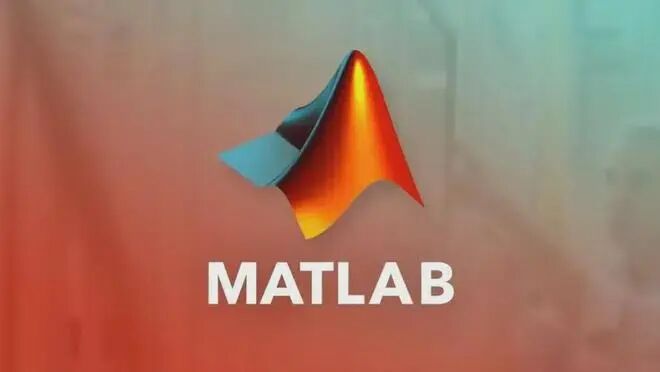As a major player in the internet industry, China has seen rapid development in recent years, leading to the emergence of many world-renowned software and development companies. However, in the field of industrial software, China has been significantly hindered by Western countries, exemplified by the ban on MATLAB at Harbin Institute of Technology (HIT) for 20 years.
Since the beginning of the new century, China’s technological level has rapidly advanced, with progress that can only be described as astonishing. Among China’s technological landscape, universities such as HIT, representing the “Seven Sons of National Defense,” have made outstanding contributions to our technological progress.
For a long time, the U.S. has gone to great lengths to curb China’s technological innovation. Institutions like HIT have naturally come under scrutiny. The U.S. has directly placed HIT and Harbin Engineering University on the “Entity List,” indicating a desire to sanction the scientific research of these two universities.
This industrial software initially entered the university market at a low or even free price, leading students to become accustomed to using MATLAB during their studies, and naturally continuing to use it in their work after graduation. In this way, MATLAB has planted the seeds of dependency in users’ minds, quickly flourishing in various fields.
Today, whether in automotive design, aerospace, communications, or finance, MATLAB’s presence is ubiquitous. However, its importance goes far beyond this; in fact, industrial software acts as the “engine” of scientific research and industrial development. Without it, many innovations and advancements would be difficult to achieve. MATLAB is a standout in this regard; it is not just software but a vast ecosystem. So, what exactly is the role of this industrial software, and how important is it?

MATLAB is an irreplaceable “artifact” for engineering. When it comes to MATLAB, many engineering students and researchers give it a thumbs up, affectionately calling it the “artifact of engineering.” Faced with complex data and equations, previously, one might have needed several days or even weeks to solve these problems. But with MATLAB, just a few lines of code can resolve the issue, which is the charm of MATLAB. Moreover, MATLAB is like a treasure chest, containing over 90 toolboxes that cover various fields such as aerospace, electromechanical, and communications. Whether you are engaged in signal processing, image analysis, or control system design, MATLAB can help you tackle it all. This highly integrated feature allows MATLAB to dominate the engineering field.

Since many experiments and data analyses rely on MATLAB, losing it could impact research progress, and the inability to use the software’s data could delay paper publications.
This is undoubtedly a serious issue for the time-sensitive academic community. After the ban on MATLAB at HIT, many faculty and students expressed significant distress. However, the greater impact may be felt in the industrial sector, especially in fields that rely on Simulink for system simulation and design, where the R&D process could be severely disrupted. Even in today’s rapidly advancing technological landscape, we still find ourselves troubled by the rights to use industrial software.

This is not due to a lack of technological capability in our country, but rather because the development of industrial software is a long process that requires extensive accumulation and participation from a large user base. China’s development in internet and software/hardware has lagged behind that of foreign countries, leading to a significant gap in this area compared to Europe and the U.S.
In contrast to directly using mature industrial software available on the market, it is challenging to completely develop a software that can replace MATLAB in the short term, and it is unlikely to yield immediate benefits.
So, how should we respond to such a predicament?
When will domestic alternatives to MATLAB emerge?
Faced with the dilemma of being cut off from MATLAB, universities and students in China have not sat idly by; they have quickly taken action to seek various countermeasures.
After discovering the cutoff, many faculty and students began actively helping HIT find alternative software, with open-source software like Octave and Scilab becoming popular choices.
These software options share similarities with MATLAB in functionality and are completely free. Although they may not be as powerful as MATLAB in certain aspects, they are still valuable alternatives. Meanwhile, some universities have started promoting domestic mathematical software, which, while still immature, is continuously improving.

In the short term, using alternative software or older versions of MATLAB is the most straightforward solution. Although there may be some compatibility issues, it at least ensures that work does not come to a complete halt. However, the fundamental solution lies in strengthening the development and promotion of domestic software, and quickly launching a fully functional domestic alternative. This requires the joint efforts of the government, universities, and enterprises, and fortunately, our country has already recognized the importance of this issue. In fact, shortly after the ban on MATLAB at HIT, many domestic software developers claimed they would accelerate their development pace to produce alternative products as soon as possible.
Conclusion
The MATLAB cutoff incident is merely a microcosm of technological blockade. In recent years, similar events have occurred frequently. From chips to operating systems, from communication devices to research tools, the shadow of technological blockade seems to be everywhere. This blockade undoubtedly impacts China’s technological development, but history teaches us that blockades have never been a good way to stifle a country’s progress. On the contrary, it may stimulate even stronger innovative power; pressure is motivation. In the face of blockades, we must recognize the importance of technological self-reliance and self-improvement. Being dependent on core technologies from others is like building a house on someone else’s foundation; it may seem to save time and effort, but it is fraught with risks.

For this reason, independent innovation has become the fundamental strategy to cope with technological blockades. This is not a task that can be completed overnight; it requires long-term investment and systematic planning, from basic research to application development, from talent cultivation to industrial chain construction, every link cannot be overlooked. However, China has the largest market in the world and a vast number of technological talents, which are our advantages. As long as we can fully utilize these advantages, we will surely be able to go further on the road of technological innovation.
The MATLAB cutoff incident has sounded an alarm for us, but it also points the way forward. In the path of technological development, the importance of independent innovation cannot be overstated. Only by mastering core technologies can we stand undefeated in the fierce international competition.

 Source / Xiao Peng Talks About SocietyAuthor / Ma XuanwenApproval / He Jingxian
Source / Xiao Peng Talks About SocietyAuthor / Ma XuanwenApproval / He Jingxian